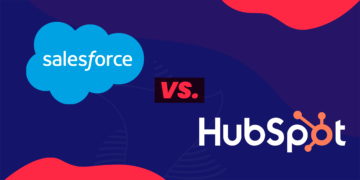When it comes to engaging your customers, choosing the perfect tool for it may seem always like a difficult task. From what options we have in the market to the full capabilities of each platform, it might be hard to decide on just one if you’re new to the world of marketing automation. But we got it clear for you, whether you’re a B2B or a B2C company, Salesforce got you covered with Marketing Cloud or Pardot.
This article will explain to you the main differences between the two marketing solutions from Salesforce. If you’re still wondering if marketing automation is the thing for you at the moment, identify first if you’re ready for marketing automation and how martech solutions can be a huge help on this. At the end of this article, you will know exactly what will be the best fit for your business! Find the table of contents below:
- What is Marketing Cloud?
- How can Marketing Cloud help you?
- What is Pardot?
- How can Pardot help you?
- Main features comparison
1. What is Marketing Cloud?
The Salesforce Marketing Cloud is a platform for delivering personalised journeys across different channels and devices, enabling marketers to deliver the right message throughout all phases of the marketing relationship. Whether you’re looking for enterprise-level e-mail, marketing automation, digital advertising or data analytics, this platform will work well for you.
2. How can Marketing Cloud help you?
Marketing cloud helps you by engaging customers with the right message at the right time and on the right channel, which results in deeper, more meaningful relationships, the ultimate goal for any marketeer. Marketing Cloud offers its client several products, that can be chosen according to their current needs.
If your goal is to target a particular channel such as email, Email Studio will help you with that. Otherwise, if you wish to target your customers through messaging, Mobile Studio is your product. Or even to connect with your social media audience, Social Studio is the perfect tool. There is the also Audience Studio that captures data from any source and device, then unify, segment, and activate audiences to create valuable customer experiences. To gain more insight about your customers Google Analytics 360 is the one, delivering cross-channel journey insights. Also, there is the Advertising Studio, which powers 1-to-1 advertising across Google, Facebook, LinkedIn, Twitter, Pinterest, and Display at scale.
One of the good things about Salesforce is that you do not have the buy a whole package to benefit from certain features. You can choose and especially the one that better fits your budget! Also, with Salesforce CDP, the tool is ready for the end of third-party cookies.
3. What is Pardot?
Pardot is a marketing automation tool that can leverage your company by automating your marketing activities and unifying your marketing and sales department. It allows to track the interaction with the customer and personalize the delivered experience, all in one place! Desmystify using Pardot for marketing automation, the B2B marketing tool, better aligning the marketing and sales departments.
Plus, if you’re running some loyalty or engagement programs, you can score and grade your customers, better fitting them into the stage of the buying process they are. The process of lead nurturing and qualification is one of the most important features of marketing automation software. Soon, Pardot will change name into Marketing Cloud Account Engagement, so it can show that this solution will be more integrated in Marketing Cloud.
4. How can Pardot help you?
Pardot is a great fit when the goal is to generate more leads and move them quickly to the pipeline; engaging your customers with more personalized campaigns, understanding your customer’s engagement to your platform, and what content is more appealing to them. Pardot will also help with the lead assignment based on intelligent lead scoring and grading, that will help you prioritized the leads and focus on the ones that are more prompt to be converted into and client or an opportunity.
5. Main features comparison
That it is up to you to decide!
Both platforms give you amazing tools to improve your customer experience. Whereas Marketing Cloud is more turn into B2C and Pardot to B2B it does not mean that they cannot be applied otherwise.
What you need to have in mind choosing the relationship you have with your business needs!
If you need a platform that you can easily engage with your customer across multiple channels and help them in their journey Marketing Cloud is the one. On the other side, in case you have a longer sales cycle process, and it needs nurturing, and you need to unify what would be Marketing and Sales, Pardot is the best.
| Marketing Cloud | Pardot |
| B2C Business | B2B Business |
| Personalized experience across multiple channels | Long-term customer life cycle, focus on nurturing |
| Goal engagement with the customer | Goal on closing deals |
| Complex configuration | Easier to implement |
| Marketing Cloud Platform (own Platform) | Align with Sales Cloud Platform |
| Transactional Sales | Oriented in closing deals at the perfect timing |
There are also other tools that might be convenient for your day-to-day activity. If you’re struggling to find them, get to read comparison of digital marketing tools to really assess your needs.
So, you might know now which platform to work with. You may also understood that the two platforms can be complementar and help each other on building the right business for your company. We’re glad to help if you have any questions.
SUBSCRIBE KNOWLEDGE CENTER
Subscribe for free to our Knowledge Center to get the latest articles straight to your inbox!







